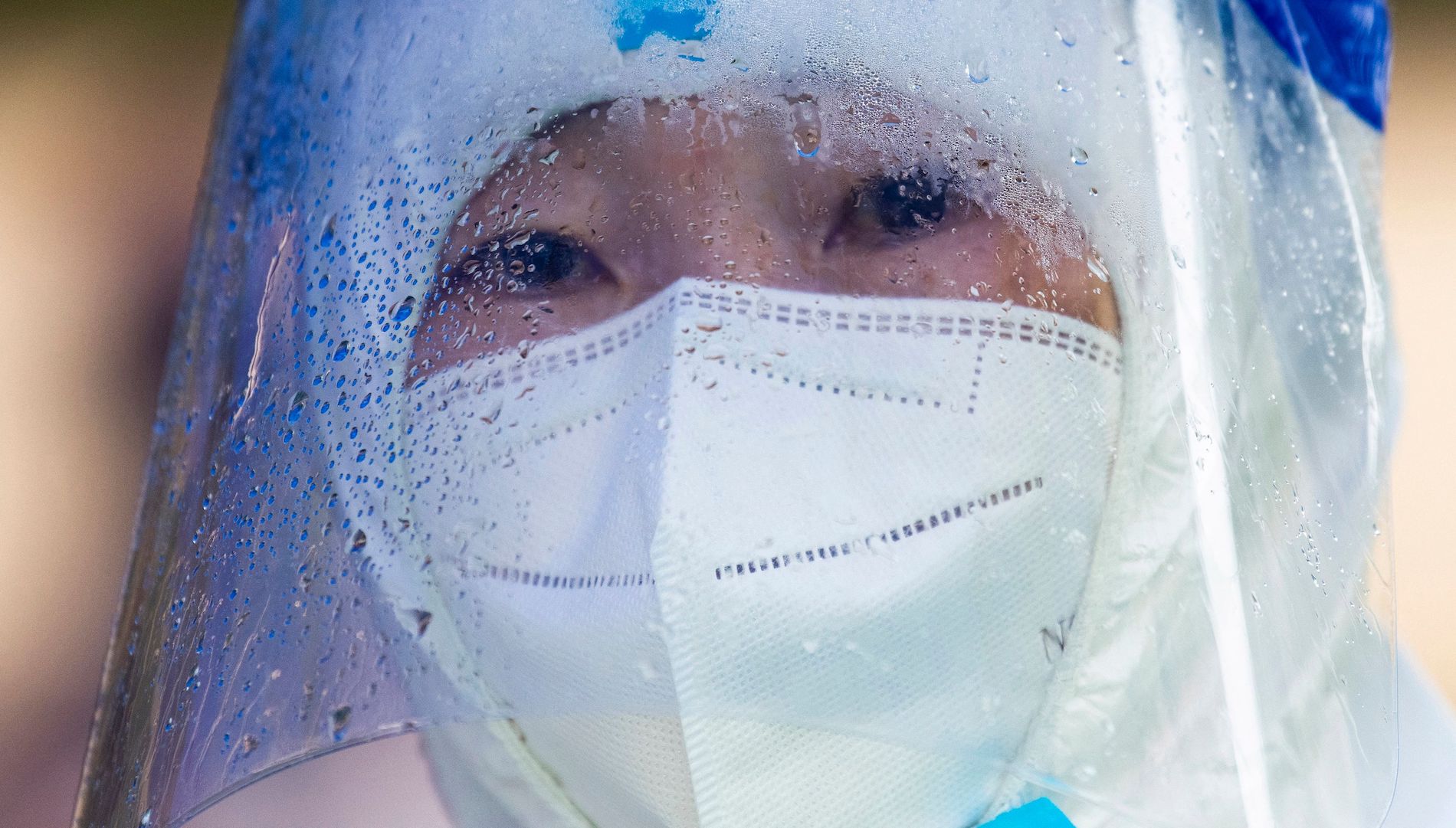Residents are "traumatized" after months of confinement 2:31
(CNN Spanish) ---
Scientists around the world were following with concern the outbreak of covid-19 that led to the confinement of the city of Shanghai.
What lessons does the increase in cases and the evolution of this outbreak leave?
Dr. Elmer Huerta explains it in this episode.
You can listen to this episode on Spotify or your favorite podcast platform, or read the transcript below.
Hi, I'm Dr. Elmer Huerta and this is your dose of information about the new coronavirus.
Information that we hope will be useful to take care of his health and that of his family.
One of the great concerns regarding the pandemic was the situation in China.
China's zero covid-19 policy: what happened?
As we heard in the March 10 episode, China, a country that has chosen the zero covid-19 policy to fight the pandemic, was facing an outbreak in Shanghai, a city with more than 25 million inhabitants.
Let us remember that the zero covid-19 policy implies eliminating the possibility of the virus in a certain territory, closing borders and mobilizing the health system to identify initial cases quickly and effectively, isolating infected people and contacts, no matter what, in the attempt , cities of millions of inhabitants are quarantined.
advertising
The scientific community feared the possibility of the outbreak spreading in a country of 1.4 billion inhabitants, without previous contact with the virus, due to its zero covid-19 policy and partially protected by Chinese-made vaccines, which have shown less effectiveness in preventing infections and hospitalizations, compared with messenger RNA vaccines manufactured in other countries.
Obviously, an outbreak out of control would have caused, according to several mathematicians from the prestigious Peking University, more than 630,000 cases a day, causing an undetermined number of hospitalizations and deaths.
But in addition to this high mortality, it was feared that such a high number of cases could lead to the formation of variants of SARS-CoV-2, which could then spread to other parts of the world.
Later, things got complicated because in addition to Shanghai, there was a large outbreak in Beijing, with cases also being found in other Chinese cities, forcing millions of people to be strictly quarantined.
The good news
Apparently, the Chinese authorities have managed to control the outbreaks, especially the one in Shanghai, a city in which restrictions have been relaxed this Wednesday after eight weeks of severe confinement.
Since that day, most of the 25 million inhabitants of the city can walk the streets, enter stores - which according to Reuters can operate at 75% of their capacity - and go to their offices, having also authorized the exit of cars. and the operation of trains and buses.
In a precautionary measure, however, most public places and mass transit still require a negative Covid-19 test taken within 72 hours, and people should also continue to wear masks in public and avoid gatherings.
The Reuters agency also reports that restaurants and gyms have not yet received authorization to open.
Regarding the mortality caused by the outbreak, in April it was reported that there had only been 17 deaths, a number that was called into question by the way in which the Chinese authorities classify the deceased.
Apparently, if a patient has an underlying disease, such as heart disease, for example, and dies from covid-19, it is not counted as a death caused by the infection but by heart disease.
The social and economic cost of the strict quarantine has been very great for the Chinese government.
Unlike the demonstrations of gratitude from the people of Wuhan when their city opened after 3 months of confinement, this time, the people of Shanghai have shown widespread discontent due to food shortages, the separation of families and hospitalizations in massive isolation centers for thousands of residents.
What China learned from this outbreak
For their part, the Chinese authorities celebrate the triumph of their public health model over the virus and deny even that they have implemented a quarantine, calling it “static city management”… something they compare to pressing the pause button.
Leaving aside the political aspects of this experience, and without wanting to stir up the debate on whether the zero covid-19 policy is better or letting the virus enter a country in a controlled manner, we think it is good news that has produced an explosion in the number of cases.
Apart from the enormous mortality, it has also prevented the formation of variants, which we are sure would have found their way to infect the rest of the world.
Do you have questions about covid-19?
Send me your questions on Twitter, we'll try to answer them in our next episodes.
You can find me at @DrHuerta.
If you find this podcast useful, be sure to subscribe to get the latest episode on your account.
Help others find it by rating and reviewing it on your favorite podcast app.
And for the most up-to-date information you can always head to CNNEspanol.com.
Thanks for your attention.
coronavirusCovid-19






